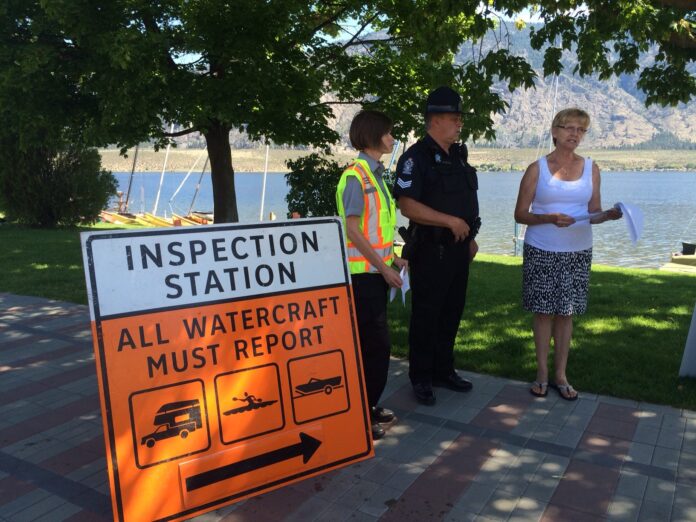Many boaters will be eager to hit the waves with warm summer weather ahead, but they should be mindful of invasive species that may come along for the ride.
The Central Kootenay Invasive Species Society (CKISS) is doing its part to make sure B.C.’s waterways are protected from potentially harmful stowaways.
One method is through teaching boaters the Clean, Drain, Dry Protocol.
“It’s important they have their boats cleaned, drained of any water and dried off completely before launching it into a new body of water,” said Laurie Frankcom, CKISS education program coordinator.
“This is what we ask you to do when you’re travelling from one body of water to another. A side benefit is that it can keep your boat nice and shiny, too.”
This include the boat itself and any equipment, such as life jackets, paddles and coolers.
The B.C. government has recently taken a step to make sure boaters are not accidentally transporting unwanted guests.
All boaters in B.C. must have their drain plug out when their boats are in transit.
“This order is part of our ongoing actions to contain and prevent further spread of whirling disease and keep invasive mussels out of B.C. waterways,” said Nathan Cullen, Minister of Water, Land and Resource Stewardship.
“Beginning May 17, 2024, boat operators in British Columbia are required to pull the plug before moving a boat or any equipment between water bodies.”
Frankcom said invasive species can be devastating if they become established in a new ecosystem.
“It can cause environmental impacts to fisheries, ecosystems and they can have economic impacts,” explained Frankcom.
“For example, if something like zebra or quagga mussels were introduced to our waterways, we’d be looking at them doing a lot of damage to our hydro system.”
Zebra and quagga mussels are just two examples from a long list of potentially invasive animals and plants.
“An example of one that has made its way into the Kootenays is Eurasian milfoil. It’s an aquatic weed that can cause a lot of harm,” said Frankcom.
“There’s also riparian plants like purple loosestrife and yellow flag iris, they live on the shores and can have some negative impacts on the environment.”
Once an invasive species is established in an ecosystem, it can be very difficult to remove as it will often out-compete indigenous species.
More: B.C. invasive species information.
Be the first to know! Don’t miss out on breaking news and daily updates in your area. Sign up to MyNelsonNow News Alerts.





